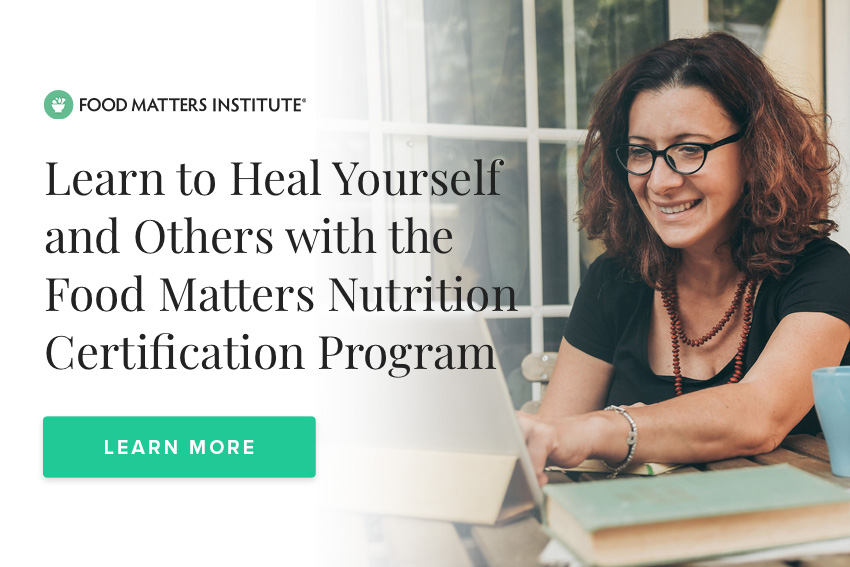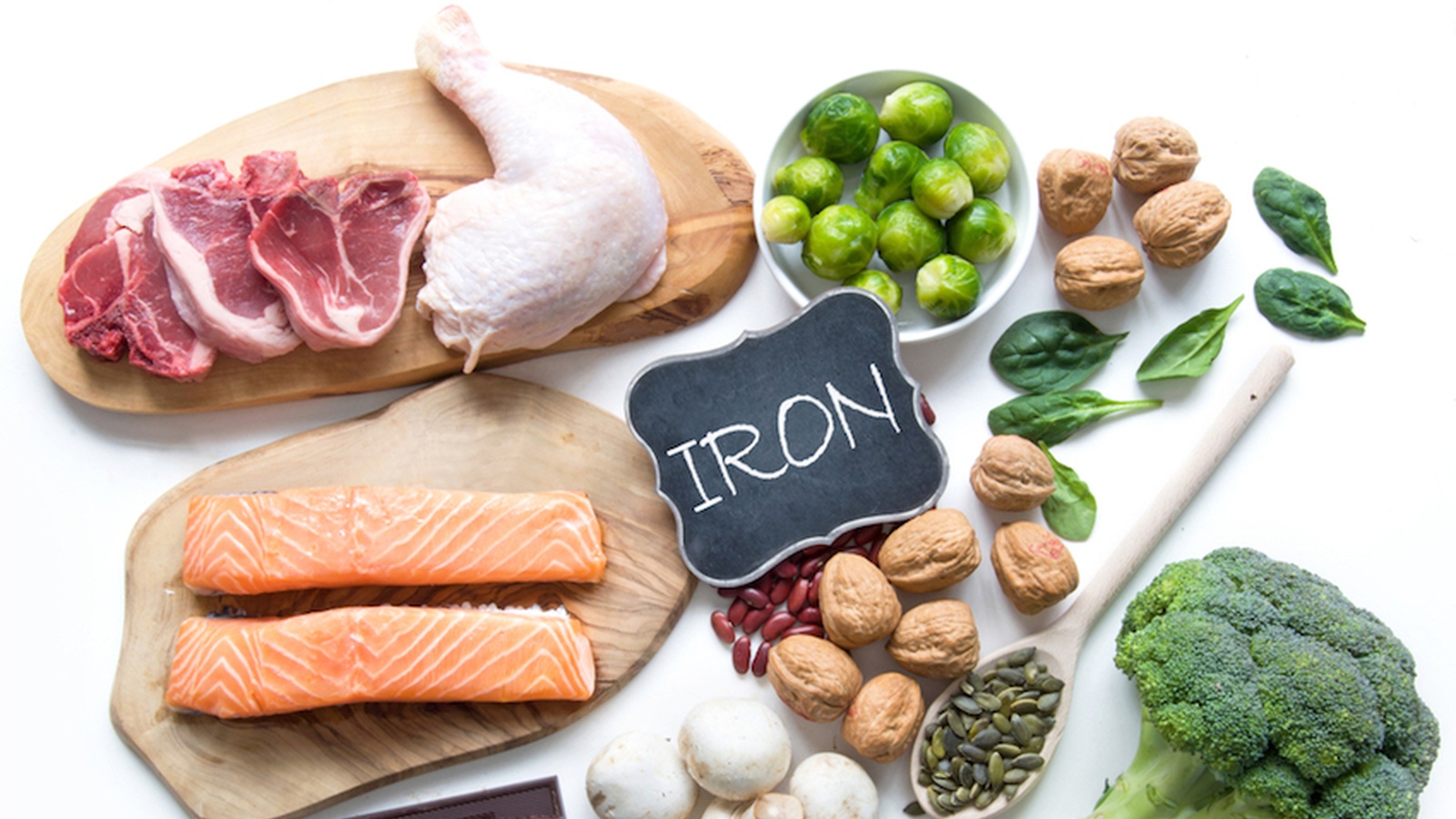Going Plant Based: How Will I Meet My Iron Needs?
Red meat is hugely popular for its abundance of highly absorbable iron, and so it is a common concern for people who are considering removing meat from their diets that they might not be able to easily meet their daily iron needs.
While meat certainly is a great source of iron; it is not the only one. There are plenty of plant-based sources of iron that can deliciously top up your iron stores and keep your body and mind in top condition.
Iron - What Is It And Why Do We Need it?
Iron is an essential mineral used by every cell in the body to help efficiently process oxygen. While the body uses and can store iron, it cannot make it and so we must eat iron-rich foods to keep our iron levels topped up.
The majority of body iron is found in red blood cells because iron’s most important role in the human body is as part of haemoglobin - the red pigment in blood that carries oxygen from the lungs throughout the body, and myoglobin - which transports oxygen in the muscles.
Iron is Also Essential For...
- Producing red blood cells
- Maintaining a healthy immune system
- Supporting good mental function
- Building and maintaining muscle strength
- Producing energy
In a healthy person, small amounts of iron are lost each day through shedding skin and cells as well as any bleeding. To keep iron levels balanced, some iron must be absorbed each day through food in addition to the recycled iron from blood cells that die.
How Much Iron Do I Need?
All 1-3 years 9mg/day
All 4-8 10mg/day
Girls 9-13 8mg/day
Girls 14–18 15mg/day
Boys 9-13 8mg/day
Boys 14–18 11mg/day
Males 19+ 8mg/day
Females 19–50 18mg/day
Female 51+ 8mg/day
Pregnant women 27mg/day
Lactating women 14-1810mg/day
Lactating women 19-309mg/day
Women in their reproductive years have a significantly higher recommended daily iron intake than men, due to the loss of monthly blood. Because of this many women in this age bracket can have a higher risk of iron deficiency and are recommended to have their iron levels regularly checked by their GP.
What Happens When You Don't Get Enough Iron?
The number one nutritional disorder affecting both poor and affluent nations across the globe is iron deficiency. If dietary iron requirements are not met, the body's iron stores gradually run down and the body becomes iron deficient. With reduced iron, less oxygen is transported to the cells and they are unable to maintain optimal performance.
Iron Deficiency Can Cause:
- Decreased cognitive function
- Impaired immune function
- Decreased physical performance
- Fatigue
- Adverse pregnancy outcomes
- Infant motor and mental function delay
- Anaemia - a serious condition where red blood cell production falls
You might be at a higher risk of iron deficiency if you are: vegan, vegetarian, a repeat ‘crash dieter’, a menstruating woman, a pregnant woman, a teenage girl, a female athlete, or have recently been hospitalised. Babies and toddlers, Indigenous Australians, refugees and recent immigrants from developing countries or institutionalised patients are also at risk.
Because the signs and symptoms can be subtle and slow to develop, it can be difficult to diagnose iron deficiency early. Some signs to watch out for:
- Frequent tiredness, fatigue and feeling weak
- Episodes of breathlessness
- Difficulty completing aerobic exercise
- Susceptibility to infections
- Decreased work and school performance
- Decreased concentration
- Decreased libido
The Best Plant-Based Sources of Iron
There are some delicious plant based ways to increase your iron levels with many green vegetables, legumes, nuts, seeds and grains boasting beneficial levels of iron. The best type of foods for iron supply are those that are both high in iron and have high iron availability, meaning your body can more easily absorb and use the iron.
Plant-Based Iron Sources:
|
Food |
Serving size |
Iron content |
|
Kidney beans |
1 cup |
|
|
Green lentils |
1 cup |
|
|
Tofu |
100g |
|
|
Chickpeas |
1 cup |
|
|
Cooked wholemeal pasta |
140g (1 cup) |
|
|
Cashew nuts |
30g (20 nuts) |
|
|
Raw spinach |
100g |
|
|
Cooked spinach |
100g |
|
|
Rolled oats |
30g |
|
|
Almonds |
30g |
|
|
Dried apricot |
30g (5 dried apricots) |
|
|
Broccoli |
1 cup |
|
|
Cooked brown rice |
140g (1 cup) |
|
|
Whole grain bread |
1 slice |
|
|
Dark Chocolate (70-85% cacao) |
28g |
|
|
Quinoa |
1 cup |
|
|
Pumpkin seeds |
28g |
Foods That Boost and Foods That Block Iron Absorption
The way you prepare your food and the combination of ingredients can impact how much iron your body can absorb. Some foods boost your iron intake and others can block it; for optimal iron absorption, it is recommended you:
Eat foods high in vitamin C with foods that contain iron - try adding some oranges, tomatoes, berries, kiwi fruit and capsicum to your iron-rich foods
- Cook your greens to improve the amount of available iron - 100g of cooked spinach gives you 30% more iron than its raw
- counterpart as the heating process breaks down the oxalic acid that can otherwise interfere with the absorption of iron
- Avoid drinking tea, coffee or calcium-rich beverages during or directly after consuming a source of iron
- Speak to your doctor about medications, supplements or digestive issues that could impact your iron absorption.
If you think you many have an iron deficiency, speak to your doctor about getting your iron levels tested; don’t take iron supplements without a proven deficiency. If you are iron deficient there are ways to correct your situation and your doctor can help you find the reason for the imbalance of iron in your body, whether it be a serious disease or you simply need to make a diet adjustment.
What’s your favourite iron-rich plant-based meal?
Do you have a passion for nutrition & natural healing?. Learn more about the Food Matters Nutrition Certification Program here.










